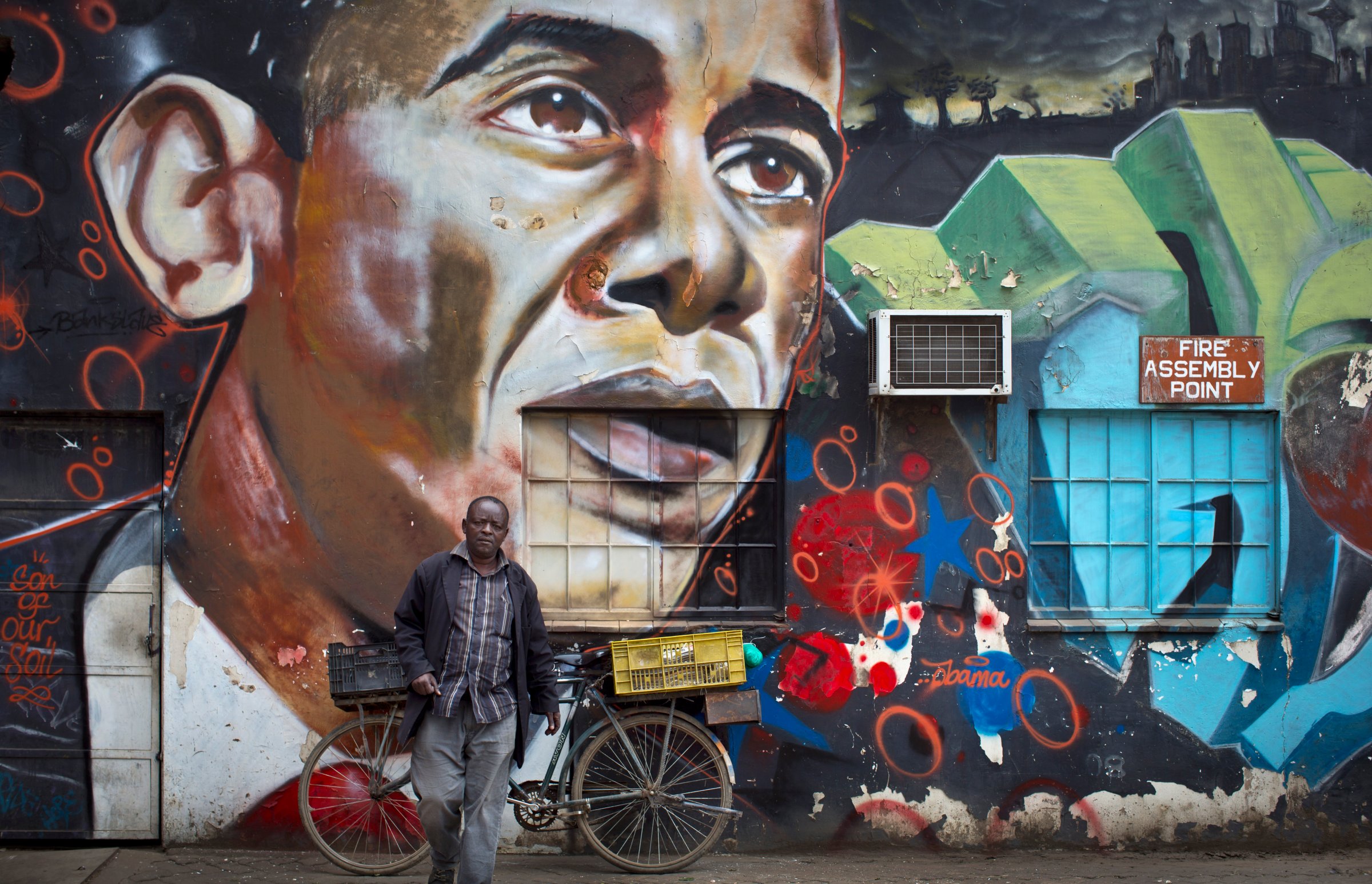
On July 23rd, President Obama will be visiting what has been the deadliest neighborhood in the world over the past twenty years. He’ll be touching down in the two most stable countries in the region, Kenya and Ethiopia. Though beset with human rights issues of their own, they are swimming in a sea of extreme instability. The armies of Somalia, Sudan, South Sudan, the Democratic Republic of Congo, and the Central African Republic, along with a veritable alphabet soup of rebel groups and criminal militias, are the most visible manifestations of Africa’s biggest challenge: the nexus between massive corruption and violent conflict.
The good news story that Africa has become in many parts of the continent will continue to be undermined by these hijacked states and their long-running, predatory civil wars. Without countering systematic looting by governments and rebel groups, peace and protection efforts stand little chance of success. A new framework must be developed to adapt, implement, and enforce the tools of financial crimes enforcement to give these countries back to the people.
In the region President Obama is visiting, which stretches from northeast to central Africa, more than nine million people have perished and fifteen million people have been rendered homeless over the past two decades. The region is rife with child soldiers, modern-day slavery, and war-related sexual and gender-based violence.
The status quo – violence and grand corruption – is good for a certain kind of business: the illegal kind. Illicit financial flows out of Africa are double the inflow of foreign aid. The irony of the “resource curse” is particularly true in the region that President Obama is headed to, as vast natural resource wealth is violently pillaged by African and non-African collaborators. Meanwhile, U.S. taxpayers have spent tens of billions of dollars in emergency aid, peace processes, and peacekeeping missions, frequently without a focus on root causes.
Countries in this region are often referred to as failed states. In reality, these states are very successful at what they have been restructured to accomplish by those in control. They instead should be considered hijacked states, in which rulers use state authority, institutions, and deadly force to finance and fortify crony networks. In these states, corruption is not an anomaly — it is the foundation of the intended system. For example, Congolese leaders have siphoned off vast amounts of the country’s mineral wealth through bogus contracts and smuggling networks, and manipulate the judiciary, military and police to service the corrupt system.
Access to a complex global financial system enables violent kleptocratic networks to exploit natural resource endowments, pillage, and launder their profits to wage war. Technically savvy and skilled at abusing legitimate systems of finance, trade, and transport, these networks have remained largely untouched by law enforcement, regulation, or international sanction.
Conventional tools of diplomacy usually have not worked because they don’t alter the calculations of those fueling war and committing atrocities. Given the current profitability of conflict, policy efforts must center on how to make war more costly than peace. One way is follow the money and deny those war profiteers the proceeds from their crimes.
In response, there are United Nations expert groups that study the problem and the World Bank tries to combat corruption, but the kleptocrats are undeterred. My organization, the Enough Project, just launched a new initiative called The Sentry, which is investigating the war economies sustaining Africa’s deadliest conflicts and supporting efforts to dismantle the illicit networks that allow government and rebel leaders to fund their violent campaigns. Going forward, a new policy framework is needed.
First, anti-corruption measures like the Department of Justice’s Kleptocracy Asset Recovery Initiative should be used to counter hijacked states, as legal prosecutions can be highly effective in holding corrupt elites to account. Second, targeted sanctions regimes – asset freezes and travel bans on individuals and entities – should focus on the nerve centers of the financial networks that sustain and profit from war.
Third, working with local and global civil society organizations, naming and shaming corrupt actors can be an effective tool of isolation. Fourth, law enforcement efforts focused on trafficking of wildlife and resources can play a critical role in squeezing the profits from violence.
Fifth, regulatory efforts also can be strengthened to improve supply chain transparency, such as the Kimberley Process for blood diamonds. Sixth, peace processes attempting to end Africa’s deadliest conflicts must design agreements that prevent these states from being hijacked again by unscrupulous leaders.
On his trip, President Obama will have to address the degree to which hijacked states benefit from war economies and thus are largely impervious to conventional diplomatic tools. To have a chance at success, future peacemaking partnerships between the U.S. and Africa need to ensure that human rights crimes no longer pay.
More Must-Reads from TIME
- Why Trump’s Message Worked on Latino Men
- What Trump’s Win Could Mean for Housing
- The 100 Must-Read Books of 2024
- Sleep Doctors Share the 1 Tip That’s Changed Their Lives
- Column: Let’s Bring Back Romance
- What It’s Like to Have Long COVID As a Kid
- FX’s Say Nothing Is the Must-Watch Political Thriller of 2024
- Merle Bombardieri Is Helping People Make the Baby Decision
Contact us at letters@time.com